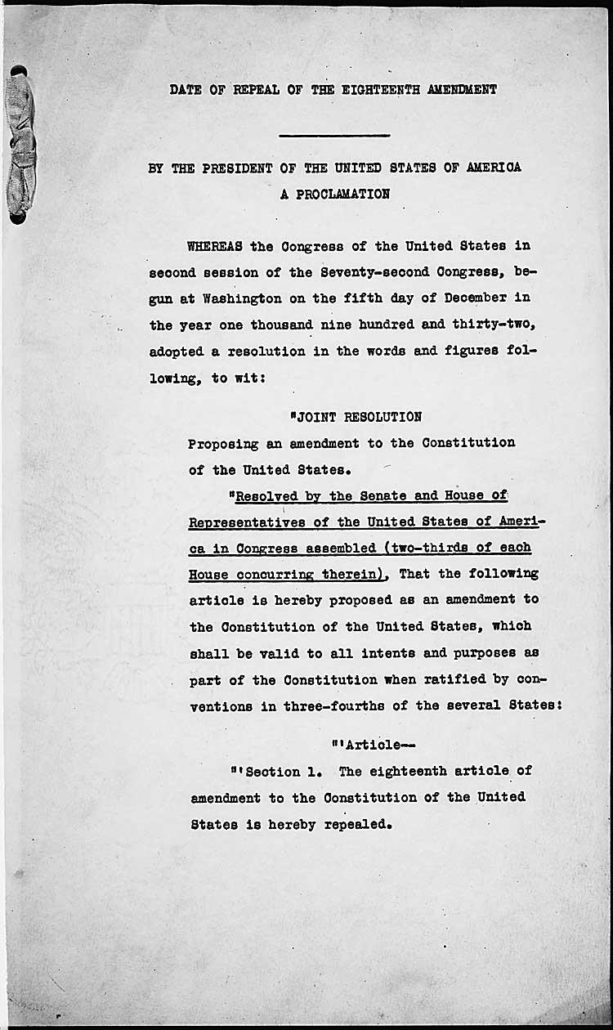This day in history: December 5
1933: The Twenty-first Amendment (Amendment XXI) to the United States Constitution is ratified
The Twenty-first Amendment (Amendment XXI) to the United States Constitution was ratified by the requisite number of states on December 5, 1933, repealing the Eighteenth Amendment and ending Prohibition.

Presidential Proclamation 2065 of December 5, 1933, in which President Franklin D. Roosevelt announces the Repeal of Prohibition., 12/05/1933 (National Archives Identifier: 299967); Series: Presidential Proclamations, 1791 – 1991; General Records of the United States Government, 1778 – 1992 ; Record Group 11; National Archives.
Little Falls Historical Society Museum’s Prohibition Exhibit
Like the rest of the nation, Little Falls residents woke up to a new reality on Jan. 17, 1920, the 18th Amendment was official and for the next 13 years the manufacture, transportation and sale of intoxicating beverages was illegal. Bootleggers, flappers, speakeasies and illegal stills would soon follow and neither the nation nor Little Falls would ever be quite the same.

Little Falls Historical Society Museum Prohibition Exhibit
The post-World War I Roaring 20′s saw mass produced automobiles, more women in the workforce, smaller family sizes, more divorces and the first “youth rebellion” against traditional values. For the first time, more Americans lived in cities than in rural areas. Little Falls’ population peaked in 1920 at 13,029.
The 1920′s Jazz Age symbolized this modern urban lifestyle and the proliferation of radios and phonographs brought jazz to a huge mostly youthful public; all this frenetic change and social activity occurred despite prohibition. This was also a most puzzling era in that it so impacted one of America’s favorite pastimes, the consumption of alcoholic beverages.
Little Falls residents responded much as their national counterparts did during Prohibition, most people attempted to abide by the new restrictions, but others went to great lengths to produce, smuggle, conceal, sell and consume alcoholic beverages.
Eighteen states continued to enforce state-level prohibition after the 21st Amendment repealed national prohibition in 1933. Over one third of Americans continued to live under prohibition; Mississippi was the last state to end prohibition in 1966.
The 1936 Little Falls City Registry listed no fewer than 32 establishments dealing with the liquor trade as well as a brewery and a beer distribution company as old patterns of life returned.


